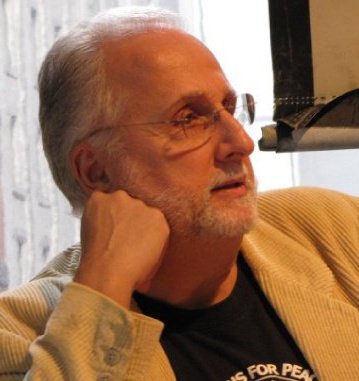Foundational to all moral injuries are issues of meaning, value and of personal, ideological and moral conflict precipitated by the veteran's experiences in war. As late adolescents and young adults were psychologically, emotionally and morally manipulated - conditioned - to kill through a sophisticated indoctrination process (boot camp, basic training), returning warriors must be deprogrammed, that is, prepared to reintegrate into a non-martial environment. Veterans require re-education - a reverse boot camp, so to speak - to replace warrior values and behaviors with values and behaviors appropriate to the environment into which they are to reintegrate. This process is intended to shore up their moral identities and verify that this period of horror - their war experiences - was a moral aberration, that the cruelty and brutality of the battlefield damages character, undermines one's ethical foundations and moral integrity and distorts one's perception of correct behavior.
Once the moral uniqueness of the battlefield is understood, veterans are better prepared to discuss and analyze, together with others who have shared the experience, the actions, feelings and memories they have thus far tried, unsuccessfully, to forget, ignore or mask with drugs and alcohol. This process of introspection and self-examination, what I term "sorting out and placing in perspective," allows veterans to re-examine their behavior in combat, enabling them to better evaluate and assess, realistically and honestly, their personal responsibility for their actions or omissions during war. In doing so, veterans may consider whether their behavior in combat, though not morally justifiable, may, given the nature of war, be understandable, perhaps even excusable, and their culpability mitigated by the fact that those who determined policy, sent them into harm's way, issued the orders and allowed the war to occur and continue unchallenged must share responsibility for the crimes and horror that inevitably characterize war.
After all is said and done, however, veterans must accept some measure of personal responsibility for their decisions and actions on the battlefield and realize that guilt and shame may be warranted. For healing to occur, self-forgiveness and/or absolution for their moral and legal transgressions may be necessary, whether through religious ritual (confession, sweat lodge, etc.) or community service (volunteering at soup kitchens, homeless shelters, hospitals, etc.). As veterans better understand the nature and reality of war and how it has been mythologized, they may realize the importance of activism and its benefit to healing.[10] By speaking out, exposing Warist's lies and holding them accountable, veterans are demonstrating true patriotism by acting in the national interest. By educating the public about the truth of war and bringing attention to its cost in lives and treasure, veterans are acting in behalf of the well being and dignity of their comrades, and for the betterment of humankind. By becoming activists, many veterans can (and have) found the renewal, absolution and penance they so desperately need to forgive themselves and find meaning in their lives. While the past can never be undone, nor the dead be made to live again, such acts of atonement may allow veterans, if not to assuage their guilt and shame, at least to begin the process of restoring their integrity, moral cohesion, self-esteem and perception of self. As healing progresses, the veterans' relationship to their world and to other human beings become intelligible ending their alienation and isolation from the remainder of the moral community.
Conclusion
What has become apparent over many years and many wars is that remaining silent about the experience is neither curative nor patriotic, contrary to what Warists would have us believe. Nor is the nation's obligation to its veterans satisfied by an expression of appreciation and thanks. For healing to occur, trauma, guilt and shame must not remain static - the veterans' personal and private burden. Rather, trauma and moral pain must be communalized - that is, unpacked, examined and discussed with others who understand and/or shared the experience.
Given the moral enormity and gravity of the war experience, the journey to healing, to achieving some sense of normalcy, is long and difficult. It is not uncommon for PEM injuries to persist and fester. The hope is, of course, that with hard work, courage, guidance and encouragement, a comprehensive, integrated and holistic treatment protocol will provide the means and the opportunity for a veteran not to put the war behind her and go on with her life as she has been naively advised on many occasions - war can never be forgotten - but, more realistically, to find meaning in and acceptance of the experience and, ultimately, a place for it in her being.
Endnotes:
1. For a detailed discussion of PEM Injuries, especially moral injury and treatment suggestions, see my book Beyond PTSD: The Moral Casualties of War, Gnosis Press, New York, 2016.
(Note: You can view every article as one long page if you sign up as an Advocate Member, or higher).





